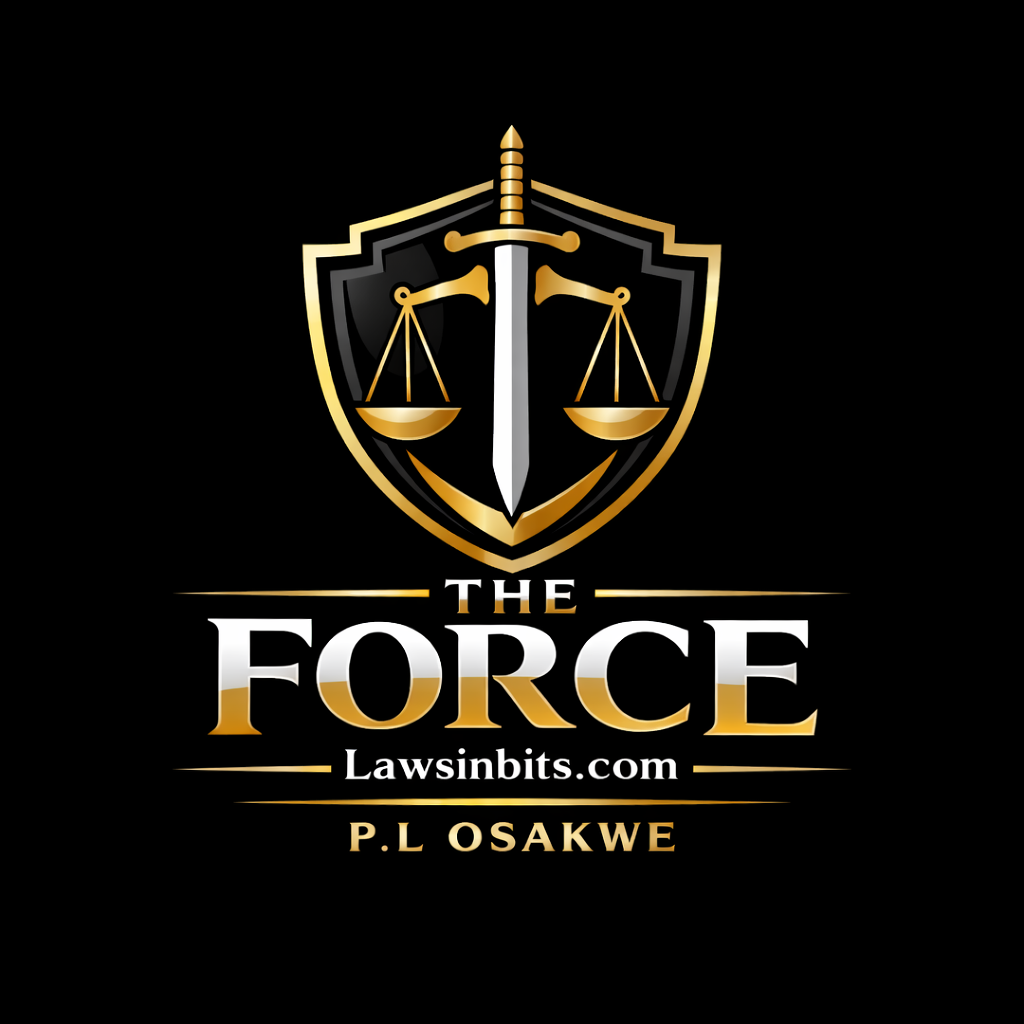By P.L Osakwe.
There is a haunting question that lingers in the courtroom: What happens when a judge enforces a law he knows is unjust? The robes may be spotless, the gavel may sound dignified, but the silence of conscience becomes louder than any ruling delivered. When courts choose obedience over justice, societies pay a heavy price. This is the cost of blind enforcement.
■ The Court as Referee Without a Whistle.
Imagine a football match where the referee sees a foul but ignores it because the rulebook instructs him not to interfere in certain circumstances. The players get hurt, the crowd grows angry, and the game loses credibility. This is not far from what happens when courts blindly enforce unjust laws. Judges, bound by precedent or statutory command, may tell themselves they are “just applying the law,” but to the people affected, the court becomes complicit in their suffering.
A society’s confidence in its legal system does not rest on technical obedience but on the sense that justice will ultimately prevail. When courts become mere robots echoing the legislature, they cease to be temples of justice and become warehouses of rules.
■ The Erosion of Public Trust.
The first and perhaps greatest cost of blind enforcement is the erosion of public trust. Citizens look to the judiciary as the final refuge when all else fails. If a person can no longer trust the court to temper law with fairness, then where do they turn? To the streets? To self-help? To despair?
A government may survive the criticism of its policies, but a society cannot survive the collapse of faith in its courts. The courtroom is the conscience of the nation. If that conscience speaks injustice, the entire system is hollowed out. Blind enforcement makes the law look less like a shield and more like a weapon.
■ The Chains of Oppression.
Unjust laws are often crafted to control, suppress, or exploit. When courts enforce them without question, they give oppression the cloak of legitimacy. A citizen imprisoned under an unjust law does not only suffer physical punishment but carries the weight of knowing the system itself has betrayed them.
It is one thing to suffer under a tyrant; it is another to suffer under the gavel of a judge sworn to deliver justice. Blind enforcement chains not only the victim but also the very idea of law. For in such moments, law ceases to be a path to freedom and becomes the architecture of oppression.
■ The Poisoned Medicine.
The law is often described as medicine for society, it corrects wrongs, heals disputes, and restores balance. But what happens when the medicine is poisoned? Should the doctor still administer it simply because it bears the label “law”? Blind enforcement answers yes, and therein lies the tragedy.
By applying unjust laws without resistance, courts become doctors who prescribe poison knowingly. They may argue that it is their duty, but duty without conscience is cruelty. The courtroom then ceases to heal and begins to harm. Citizens, instead of leaving the court relieved, leave it wounded.
■ The Burden on Conscience
We often forget that judges are human beings too. Blind enforcement not only hurts the people but also torments the conscience of those who deliver such rulings. Imagine sitting on the bench, looking into the eyes of a mother, a laborer, a student, and knowing the law you are about to apply will ruin them unfairly. Yet, you pronounce it because “it is the law.”
This silent war within judges corrodes the moral fiber of the judiciary. It is a hidden cost, the cost of turning men and women of wisdom into reluctant executioners. Over time, this erodes the dignity of the bench and reduces justice to a hollow ritual.
■ The Death of Justice.
Ultimately, the greatest cost is the slow death of justice itself. Law and justice are not identical; law is the body, but justice is the soul. When courts insist on enforcing unjust laws simply because they exist, they kill the soul of justice while keeping the body of law alive. The corpse may look intact, but it is lifeless.
Citizens do not cry out for law in its raw form; they cry out for justice. And if the courts no longer deliver justice, people begin to question why courts exist at all. This is the most dangerous outcome of blind enforcement, it delegitimizes the entire judicial system.
■ A Cry for Courage.
What, then, is the way out? Blind enforcement is not inevitable; it is a choice. Judges can still interpret laws in ways that preserve justice. Legislators can be reminded that laws without conscience are tools of oppression. Lawyers can challenge the moral weight of statutes, refusing to let blind obedience silence human dignity.
The cost of blind enforcement is too high for any society to pay. It weakens institutions, breaks citizens, and tarnishes the moral authority of the judiciary. Courts must remember: their allegiance is not merely to the words of a statute but to the beating heart of justice that gives those words meaning.
■ Conclusion.
Every time a court enforces an unjust law without question, a piece of justice dies. The cost is measured not only in the lives ruined but in the loss of faith, the corrosion of conscience, and the silence of truth. Blind enforcement may seem like loyalty to the law, but in reality, it is betrayal of justice. And a justice system that betrays justice is not a justice system at all, it is merely a machine, and a broken one at that.



